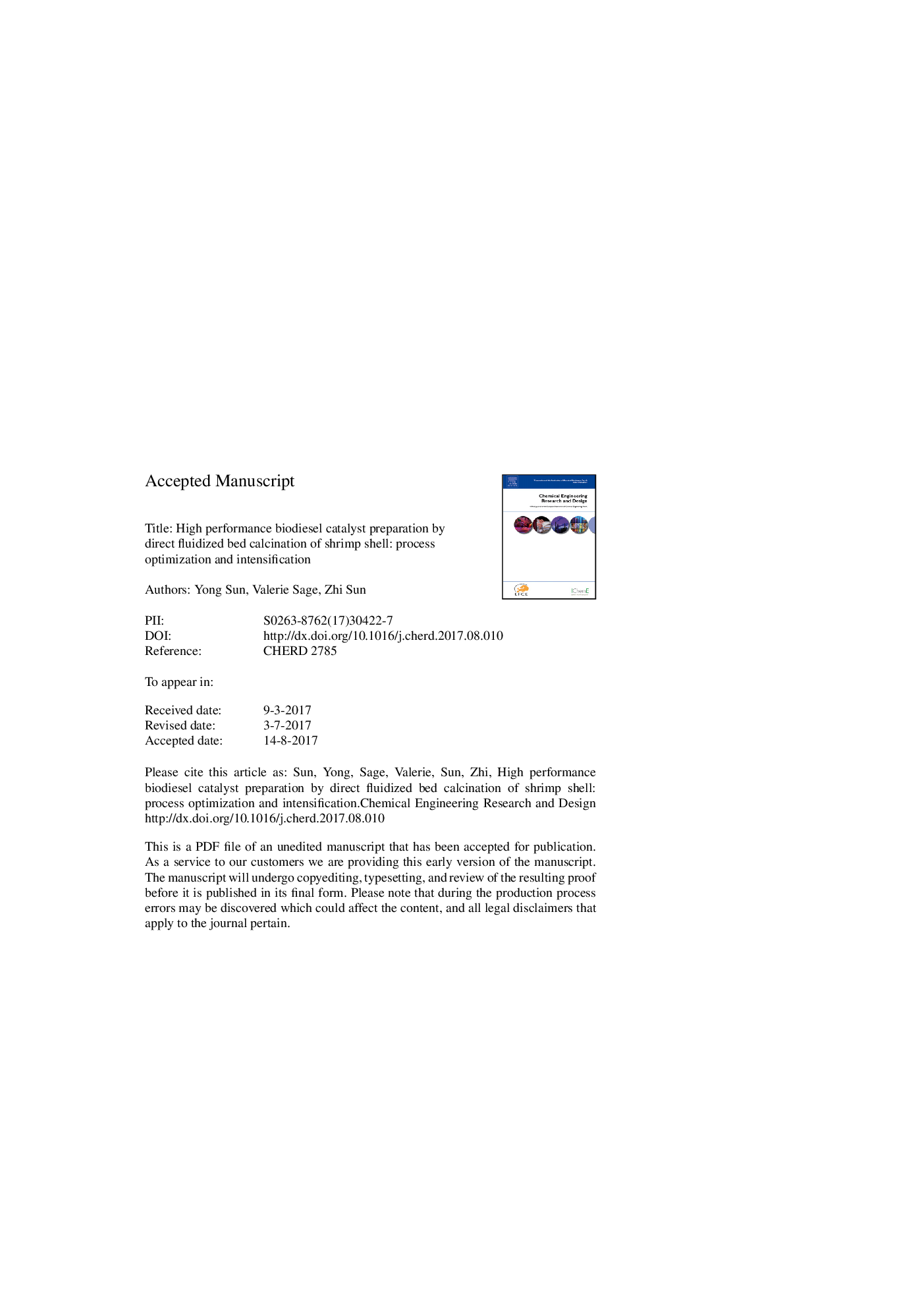| Article ID | Journal | Published Year | Pages | File Type |
|---|---|---|---|---|
| 4986997 | Chemical Engineering Research and Design | 2017 | 35 Pages |
Abstract
Fluidized bed reactor significantly intensified the shrimp shell (SS) calcination process for the preparation of high performance CaO based catalyst. A modified Shrinking-Core Model (SCM) was employed to describe the calcination process at high temperature. The activation energy of the chemical reaction controlled initial stage of the decomposition was 64 kJ molâ1. The activation energy of the diffusional controlled subsequent stage of the decomposition was 22 kJ molâ1. The response surface methodology (RSM) and the central composite design (CCD) were used to optimize biodiesel preparation conditions. Three critical operational parameters, calcination temperature (°C), catalyst loading (%) and methanol to oil ratio (-) were chosen as independent variables in CCD. The individual effect of the calcination temperature and the combined effect of the calcination temperature with the catalyst loading were significant to biodiesel conversion. The optimal condition for achieving the maximum biodiesel conversion was obtained: calcination temperature (800 °C), catalyst loading (3%), and the ratio of methanol to oil (10), with yield and conversion reaching 87.5% and 89%. The 0.16 h of calcination duration was achieved using fluidized bed reactor.
Keywords
Related Topics
Physical Sciences and Engineering
Chemical Engineering
Filtration and Separation
Authors
Yong Sun, Valérie Sage, Zhi Sun,
